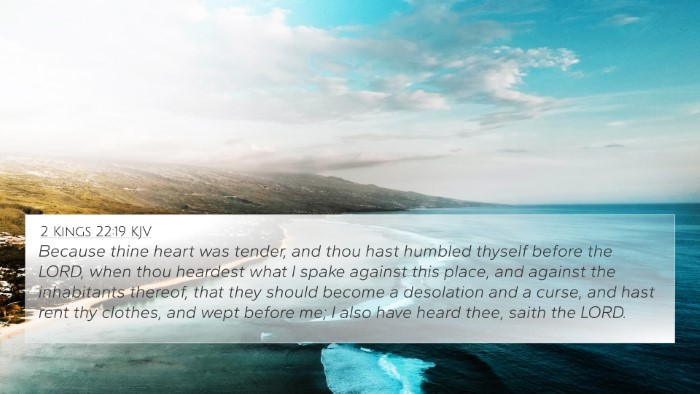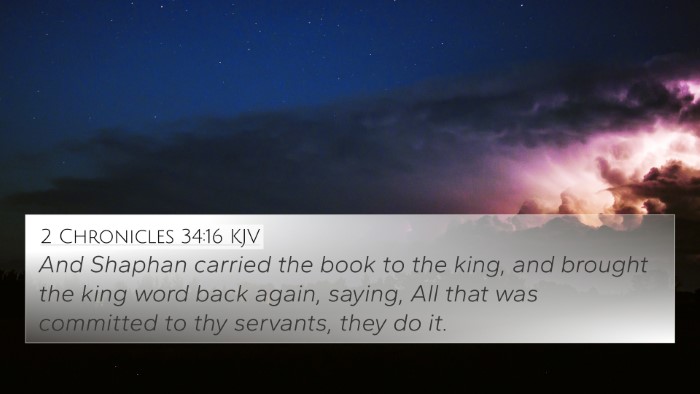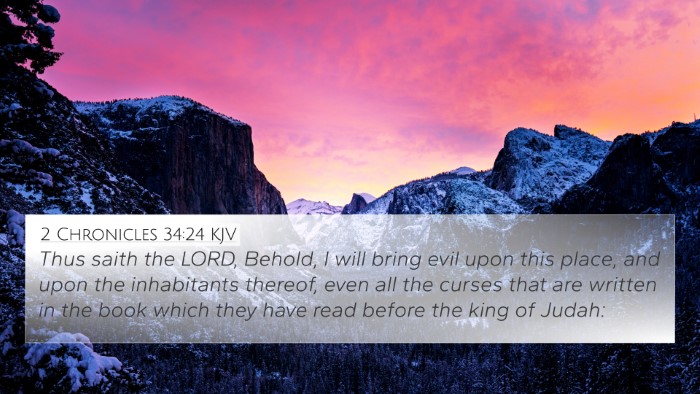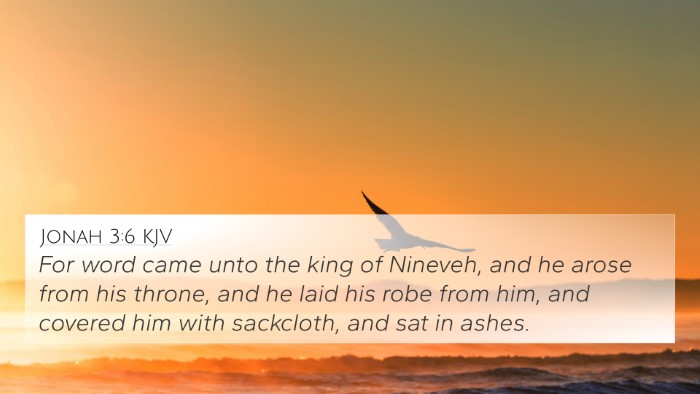Understanding Jeremiah 36:13
Verse Context: Jeremiah 36:13 states, "And they went in to the king into the court, but they laid up the roll in the chamber of Elishama the scribe, and told all the words in the ears of the king." This verse captures a moment in the prophetic ministry of Jeremiah where the words of the scroll are reported to King Jehoiakim, an important figure in the history of Israel and a pivotal character in the life of Jeremiah.
Summary of Key Insights
This verse reflects the tension between the prophetic message and the authority of the king. Both Matthew Henry and Adam Clarke emphasize that Jeremiah’s messages were often met with resistance, particularly by those in power. Albert Barnes adds that this act of delivering the words of the scroll illustrates the ongoing struggle of God’s word to reach the hearts of those in high positions.
Thematic Connections
Jeremiah 36:13 serves as a significant point of connection in the larger narrative of the Bible. The themes encapsulated in this verse relate closely to several key ideas, including:
- Resistance to Prophetic Message: The verse encapsulates the reality of how those in authority often resist the words of God, reflecting broader Biblical themes seen in narratives throughout scripture.
- Role of the Scribe: Elishama's role as a scribe illustrates the importance of preserving God's words, a theme that resonates with texts like Proverbs 4:20-22.
- Historical Influence: The involvement of the king highlights the intersection of divine authority and human governance, relevant in various scriptural contexts including Romans 13:1.
Cross-Referenced Verses
To deepen the understanding of Jeremiah 36:13, we can look at the following cross-references:
- Jeremiah 1:17: This verse emphasizes the call of Jeremiah to deliver messages to the people despite opposition.
- Jeremiah 20:7-9: Here, Jeremiah expresses the burden of delivering God’s message and the conflict it brings.
- Proverbs 29:1: A reflection on the resistance faced by the one who remains stubborn against correction.
- 1 Kings 22:14: This passage highlights the role of a prophet in declaring God's message, paralleling Jeremiah's plight.
- Lamentations 2:9: Addresses the consequences of failing to heed God's messages, tying back to the themes of authority and rebellion.
- Ezekiel 3:17-21: Discusses the responsibility of the watchman, echoing Jeremiah’s role as a prophet delivering warnings.
- Acts 7:51: A New Testament verse that speaks of resisting the Holy Spirit, echoing the sentiments found in Jeremiah’s messages.
Conclusion
Jeremiah 36:13 provides rich insights into the interplay between prophetic authority and kingly resistance. It challenges readers to reflect upon their own reception of God’s Word. By cross-referencing with other scriptures, one can gain a fuller understanding of how God's messages are often met with skepticism and the importance of affirming one's faith in the face of authority.
Tools for Further Study
For those interested in exploring connections between Bible verses, various tools can enhance your study:
- Bible Concordance: A helpful resource for identifying themes and words throughout the scripture.
- Bible Cross-Reference Guide: These guides assist in finding related verses that enhance understanding.
- Cross-reference Bible Study: Engaging in study methods that focus upon thematic connections and parallels in the scriptures.
Encouragement for Cross-Referencing
As you dive deeper into scripture, remember the importance of connecting themes and messages. Understanding how verses relate to each other can significantly enrich your Bible study, providing insights that inform your faith and understanding.







